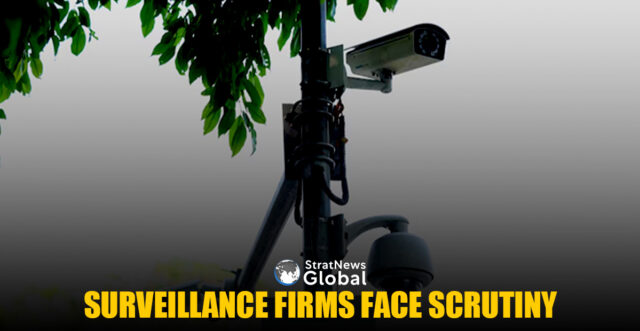Global surveillance equipment makers have recently come into conflict with Indian regulators over controversial new security regulations that mandate CCTV manufacturers to submit their hardware, software, and source code for inspection in government labs, according to official documents and company correspondence.
The Indian regulator’s security-testing policy has sparked warnings of supply disruptions in the surveillance industry and added to a string of disputes between Prime Minister Narendra Modi‘s administration and foreign companies over regulatory issues and what some perceive as protectionism.
New Delhi’s approach is driven in part by its alarm about China‘s sophisticated surveillance capabilities, according to a top Indian official involved in policymaking. In 2021, Modi’s then-junior IT minister told parliament that 1 million cameras in government institutions were from Chinese companies, and there were vulnerabilities with video data transferred to servers abroad.
New Regulations
Under the Indian regulator’s new requirements applicable from April, surveillance equipment manufacturers such as China’s Hikvision, Xiaomi and Dahua, South Korea’s Hanwha, and Motorola Solutions of the U.S. must submit cameras for testing by Indian government labs before they can sell them in the world’s most populous nation. The policy applies to all internet-connected CCTV models made or imported since April 9.
“There’s always an espionage risk,” Gulshan Rai, India’s cybersecurity chief from 2015 to 2019, told Reuters. “Anyone can operate and control internet-connected CCTV cameras sitting in an adverse location. They need to be robust and secure.”
Indian officials met on April 3 with executives of 17 foreign and domestic makers of surveillance gear, including Hanwha, Motorola, Bosch, Honeywell and Xiaomi, where many of the manufacturers said they weren’t ready to meet the certification rules and lobbied unsuccessfully for a delay, according to the official minutes.
In rejecting the request, the government said India’s policy “addresses a genuine security issue” and must be enforced, the minutes show.
CCTV Rules
India said in December that the CCTV rules, which do not single out any country by name, aimed to “enhance the quality and cybersecurity of surveillance systems in the country.”
This report is based on a Reuters review of dozens of documents, including records of meetings and emails between manufacturers and Indian IT ministry officials, and interviews with six people familiar with India’s drive to scrutinise the technology. The interactions haven’t been previously reported.
Insufficient testing capacity, drawn-out factory inspections, and government scrutiny of sensitive source code were among the key issues camera makers cited as having delayed approvals and risked disrupting unspecified infrastructure and commercial projects.
“Millions of dollars will be lost from the industry, sending tremors through the market,” Ajay Dubey, Hanwha’s director for South Asia, told India’s IT ministry in an email on April 9.
The IT ministry and most of the companies identified by Reuters didn’t respond to requests for comment about the discussions and the impact of the testing policy. The ministry told the executives on April 3 that it may consider accrediting more testing labs.
Millions of CCTV cameras have been installed across Indian cities, offices and residential complexes in recent years to enhance security monitoring. New Delhi has more than 250,000 cameras, according to official data, mostly mounted on poles in key locations.
The rapid take-up is set to bolster India’s surveillance camera market to $7 billion by 2030, from $3.5 billion last year, Counterpoint Research analyst Varun Gupta told Reuters.
China’s Hikvision and Dahua account for 30% of the market, while India’s CP Plus has a 48% share, Gupta said, adding that some 80% of all CCTV components are from China.
Hanwha, Motorola Solutions and Britain’s Norden Communication told officials by email in April that just a fraction of the industry’s 6,000 camera models had approvals under the new rules.
China Concern
In 2022, the U.S. banned sales of Hikvision and Dahua equipment, citing national security risks. Britain and Australia have also restricted China-made devices.
Likewise, with CCTV cameras, India “has to ensure there are checks on what is used in these devices, what chips are going in,” the senior Indian official told Reuters. “China is part of the concern.”
China’s state security laws require organisations to cooperate with intelligence work.
Reuters reported this month that unexplained communications equipment had been found in some Chinese solar power inverters by U.S. experts who examined the products.
Since 2020, when Indian and Chinese forces clashed at their border, India has banned dozens of Chinese-owned apps, including TikTok, on national security grounds. India also tightened foreign investment rules for countries with which it shares a land border.
The remote detonation of pagers in Lebanon last year, which Reuters reported was executed by Israeli operatives targeting Hezbollah, further galvanised Indian concerns about the potential abuse of tech devices and the need to quickly enforce testing of CCTV equipment, the senior Indian official said.
The camera-testing rules don’t contain a clause about land borders.
But last month, China’s Xiaomi said that when it applied for testing of CCTV devices, Indian officials told the company the assessment couldn’t proceed because “internal guidelines” required Xiaomi to supply more registration details of two of its China-based contract manufacturers.
“The testing lab indicated that this requirement applies to applications originating from countries that share a land border with India,” the company wrote in an April 24 email to the Indian agency that oversees lab testing.
Xiaomi didn’t respond to Reuters queries, and the IT ministry didn’t address questions about the company’s account.
China’s foreign ministry told Reuters it opposes the “generalisation of the concept of national security to smear and suppress Chinese companies,” and hoped India would provide a non-discriminatory environment for Chinese firms.
(With inputs from Reuters)





